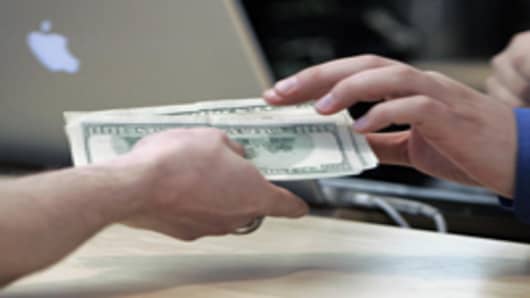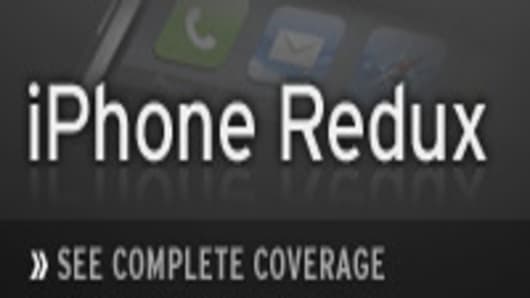The release of Apple's next-generation iPhone will usher in a new chapter of big-time growth for the company, as analysts speculate just how much iPhone sales will mushroom because of 3G.
Apple is widely expected to take the wraps off of iPhone 3G at its week-long Worldwide Apple Developers Conference in San Francisco June 9-13. The actual unveiling is expected to come during founder Steve Jobs' keynote address Monday.
Analysts speculate the new device will look much like the current model on the outside, but feature a host of new technologies on the inside, including far faster network access on AT&T's 3G platform.
Separately, AT&T has already said that it plans to make two-thirds of its nationwide cell phone network 3G ready by the end of June, with 275 markets able to offer download speeds of 1.4 Mpbs and upload speeds of 500 to 800 kpbs. The company's current "Edge" network offers only fractions of those speeds. All the company's 350 nationwide markets will be 3G ready by the end of the year after a $20 billion network overhaul by the company.
The substantially faster network will be a boon to the digital media-centric iPhone. Unlike the
Blackberry from Research in Motion, which is geared to business users with less of a need for a super-fast network because of the simple data being exchanged, the iPhone has been a mobile media player from the day it was conceived. Wireless music and video downloads have widely been seen as the key difference between the two handsets, and a faster network will spur faster adoption of the product and generate booming sales, analysts say.
Some Wall Street analysts also expect new applications in the new device, including GPS navigation, a haptics response touch screen so users can "feel" what they're typing without having to use a conventional keyboard, possibly a video camera and a more scratch-resistant case.
Apple bull Gene Munster of Piper Jaffray warns investors to keep iPhone improvement expectations "in check," with the new phone likely to be a twin of the current model.
Apple expected to sell 10 million iPhones this year, but now many analysts on the Street are inching up their expectations as new models come to market. For example, Shaw Wu at American Technology Research expects sales of 11 million in 2008. Munster is forecasting Apple will ship 45 million units in calendar 2009.
Meanwhile, some experts are expecting a price of the device to drop to $299-$349, compared with the current price of $399.
The wildcard in all this is what Apple may or may not include from the hundreds of thousands of developers who have downloaded the company's Software Developers' Kit for iPhone. Once Apple made that kit widely available, many analysts said the move would dramatically expand the kinds of applications available for the device. The so-called SDK was downloaded more than 200,000 times within weeks of its availability.
Couple that with the $100-million fund from well-known venture capital firm Kleiner Perkins Caufield & Byers to encourage new iPhone software development, and Apple is doing what it can to throw kerosene on a hot iPhone market.
One other thing to remember: Apple opens its first store in China, expected during the Olympics, later this summer. The company has yet to strike a deal with China Mobile to bring the iPhone officially to China, even though some market research suggests thousands of "unlocked" iPhones are already widely in use in the country.
Though Steve Jobs has said little about the status of those talks, analysts suggest they are indeed underway and once iPhone cracks the Chinese market, Munster's 2009 iPhone sales call becomes all the more reasonable.



